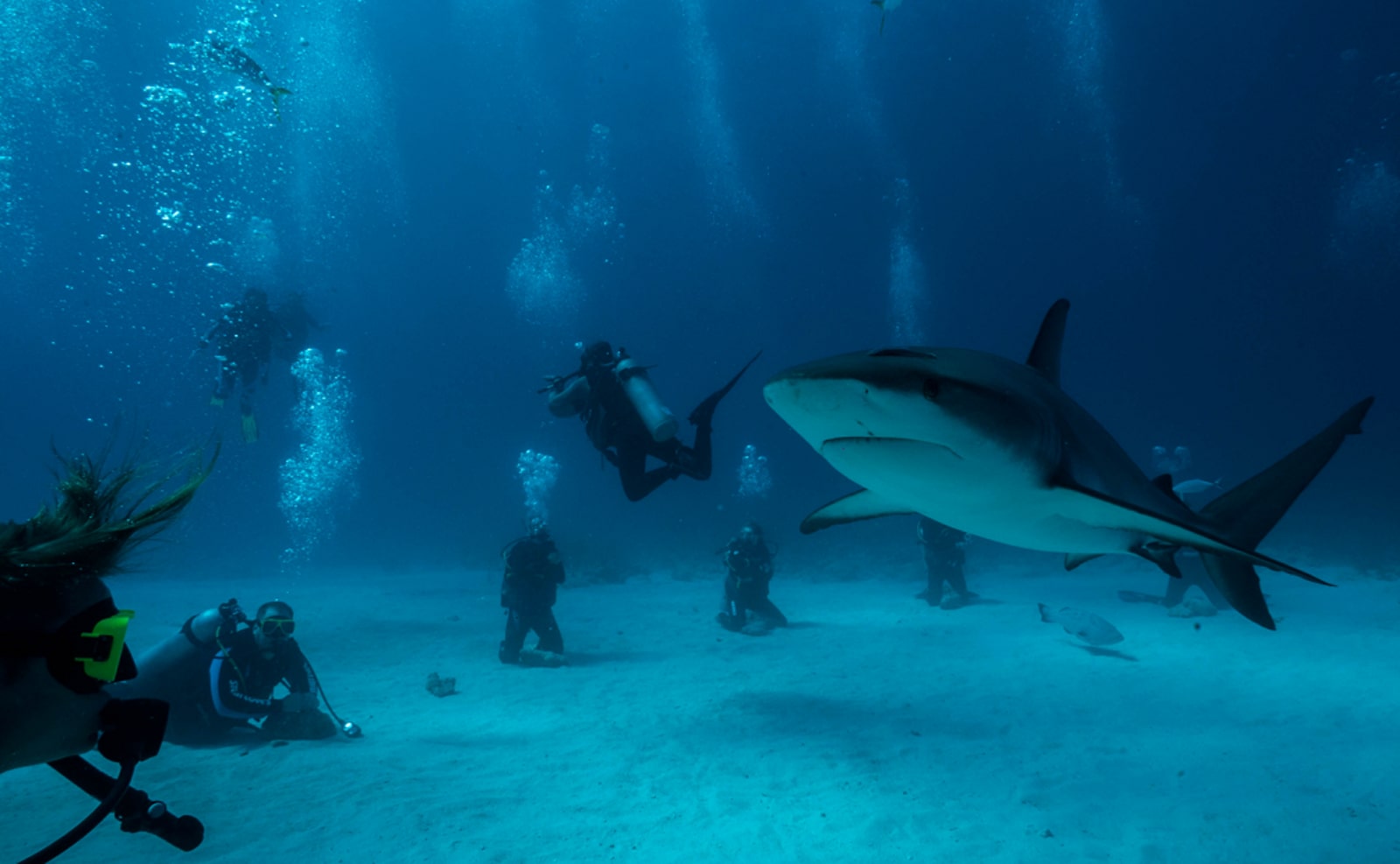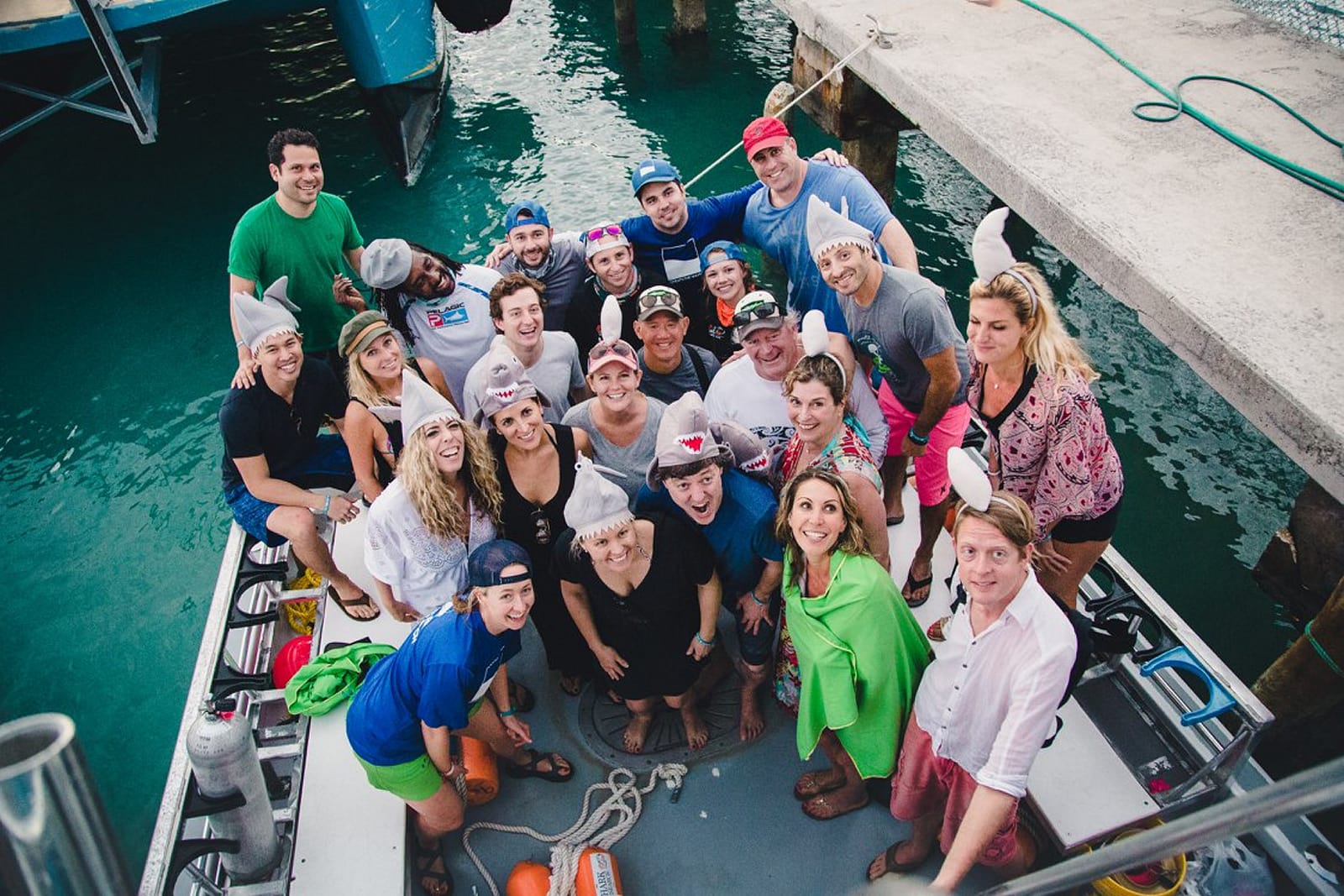Can a New Wave of Entrepreneurs Save The Ocean
I’ve always believed business can be a great lever in making a difference in the world. And, in the ocean, we have an incredible opportunity to prove this.
As I’ve started to learn more and more about ocean conservation, it’s become clear just how imperative it is we get to work. You can look at it from an economic standpoint, with the ocean accounting for the biggest business in the world. It would actually total the world’s seventh largest economy with a GDP equivalent to US$2.5 trillion (about 5 per cent of global GDP).
Or, viewed from an ecological and planetary standpoint, the ocean is responsible for every other breath we take. Either way, we’re facing a critical choice point and the fact is, a healthy ocean is a healthy planet. Period.
The ocean needs our help and businesses have an opportunity to take the lead. Not only to create an impact, but also adding to their bottom line.
We just held a unique Maverick Impact experience in the Bahamas with a group of industry-leading entrepreneurs and business leaders to support the UN’s Global Goal #14: Life Underwater, and Ocean Conservation. This is our key focus for the impact efforts we’re committed to in 2018.
Maverick1000 members were hands-on with marine biologists from Beneath the Waves, and Karen Sack, our ocean advocacy expert and founder of Ocean Unite,. We discovered how we can use entrepreneurial thinking, skill sets and resources to make a difference. The group learned how numerous and interconnected the issues facing the ocean really are – from overfishing and climate change, to plastics proliferation and more.
We jumped in with both feet…
As Mavericks, it couldn’t be about sitting in the classroom. Our experience involved hitting the water to explore the health of reefs, swim with sharks, and even become ‘citizen scientists’ tagging sharks with Dr. Austin Gallagher and his team at Beneath the Waves.  The health of apex predators, like sharks, is extremely important for the overall health of the ocean. Sharks have been vilified and misunderstood by so many people that just understanding these magnificent creatures better will lead to better decisions. Beneath the Waves was one of the advocates for helping establish the Bahamas as a shark sanctuary in 2011.
This ended all commercial shark fishing in Bahamian waters and a ban on the trade, sale, and possession of sharks and shark parts. Not only was it the right thing to do, but it’s been the right thing for the economy of the Bahamas. A recent study published in the journal Biological Conservation found that sharks and rays contributed $114 million dollars to the Bahamian economy in 2014 with 99 per cent of this value generated by the shark and ray tourism sector. After personally getting to experience some of these critical issues, we rolled up our sleeves and got to work on the ways we can make a difference.

What can businesses do to make a difference?
Part of our discussion was around what each of us could do individually and within our own companies. Here are a few featured examples:
- 4Ocean, a jewellery company that removes 1 lb of ocean trash for each bracelet purchased. To date, they’ve pulled 293,000+ pounds of waste from the water.
- Apparel company, Devoceans, that provides 20 per cent of their profits to sea turtle sanctuaries and programs.
- Bureo, a lifestyle brand that makes skateboard decks and other accessories out of recycled fishing nets.
- Adidas using reclaimed ocean plastic to develop their new Parley shoes.
- PlasticBank, uses an “empowered employment†model of having people in poverty collect ocean-bound plastic to recycle and turn in for money or other services. Then PlasticBank uses that recycled plastic to sell to manufacturers and product creators.
In my book Evolved Enterprise, I go on to show how this concept can not only grow your bottom line, but can create sustainable, competitive advantage, engage your whole team and get your customers to become advocates for you. Research from Nielsen shows 58 per cent of global consumers (in 58 different countries) are willing to pay more for goods and services from companies that make a difference. Employment surveys also show that millennials are willing to get paid less to work for a company that has a core mission or purpose baked into what they do. It’s all actually really good for business.

What did the Mavericks come up with?
- A fulfilment company created ways they could immediately reduce their plastic packaging, which also reduces their costs. They also considered providing an incentive for each of their clients to also reduce their own packaging, which only would serve everyone.
- A publisher decided she would provide a percentage of sales for an upcoming promotion and virtual summit to ocean conservation.
- A consultant who works with eCommerce companies is now working on providing resources and information on reducing plastic packaging and shifting the paradigm for Amazon sellers to understand how doing so can also help grow their businesses.
- A luxury villa rental company in Mexico had already taken steps to remove all plastic bags from groceries delivered during stays – but now has gone one step further. She is going to create local ocean clean-ups to bring these separate families together and build community among the villa renters.
We hold numerous gatherings, retreats and experiences throughout the year and our team thought through how we can be more intentional about some of the things we do. To combat some of the plastic used, we provided each attendee with their own reusable water bottle, t-shirts were printed with environmentally friendly ink and we even brought our own paper straws for the restaurants and venues we booked for meals.
Millennials are willing to get paid less to work for a company that has a core mission or purpose baked into what they do. It’s all actually really good for business.
What’s more, we offset carbon emissions for all of the attendees’ flights to and from the event as well as for the use of accommodations and land transport while in the Bahamas. The carbon offset credits go to support the Seagrass Grow Initiative from the Ocean Foundation. So far they’ve planted more than 335,222 square feet of seagrass to offset more than 223,472 tons of greenhouse gases. And now together we’ve added to that total. For your own future trips you may consider the Sea Grass Grow Initiative here.
We are so excited to deepen our commitment to The UN’s Global Goal #14: Life Underwater as our key focus for this year and to being a part of something truly impactful on such a global level. As you can see here, while this is obviously a serious undertaking we’re still not taking ourselves too seriously over here, and just beginning our blue voyage….




